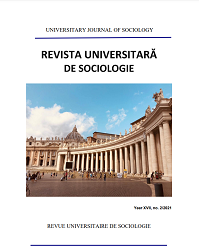WORKING ABROAD. ROMANIAN ROMA EXPERIENCES
WORKING ABROAD. ROMANIAN ROMA EXPERIENCES
Author(s): Sinziana PredaSubject(s): Welfare services, Migration Studies, Ethnic Minorities Studies, Human Resources in Economy
Published by: Ediktura Beladi
Keywords: Roma; poverty; survival; abroad; migration;
Summary/Abstract: In Romania, the Roma constitute the third largest ethnic group and the group considered the most disadvantaged in economic and social terms. Their marginalization originates in a long history of rejection, starting from the condition they initially had in society, that is of slaves (the liberation of the gypsies from servitude ended in 1856). The communist regime tried to assimilate them, especially through measures of integration in the national education system, in factories, in agriculture. Many Roma believe that their life has been better in socialism, as they have found relatively easy employment and access to housing. Nostalgia for these benefits is constantly marked by their discourse, in the narratives about the current standard of living, unemployment and going abroad, for a better life. The impossibility of finding a job does not only affect the Roma, and it is not only them who decide to migrate abroad for better salaries. Many Romanian citizens go to the West but unlike them, Roma are less likely to achieve a decent life in their origin countries. "Roma are exposed to a much higher degree of extreme poverty, discrimination and exclusion in their countries of origin."1 This background characterise the phenomenon of labor migration represented by Roma. In this paper we will analyze a several migration experiences, based on some interviews collected in the first project dedicated to the oral history of Roma in Romania, "The Untold Story. An Oral History of the Roma People in Romania".
Journal: Revista Universitară de Sociologie
- Issue Year: XVII/2021
- Issue No: 2
- Page Range: 287-294
- Page Count: 8
- Language: English

